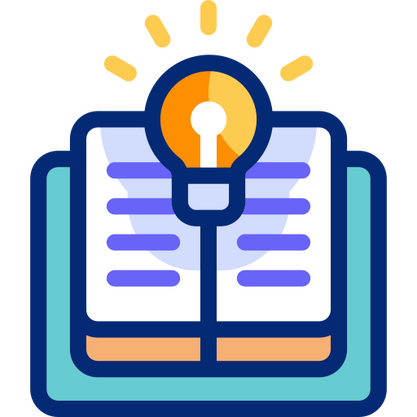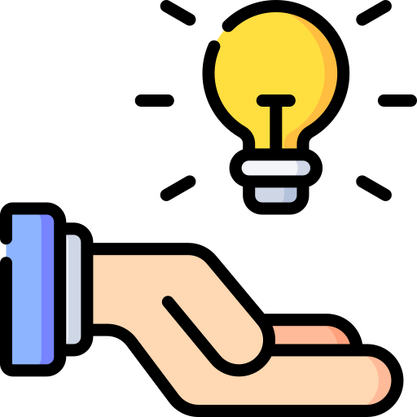PSYCHOLOGICAL FORUM
TRAVERSING THE EMOTIONAL DISTANCE
A 6-week Online Course for ISTDP/EDT Therapists
Start October 25th


In ISTDP, we rely on our choice of words to create emotional closeness. However, we know less about the underlying psychology of language in doing so.
In this course, you will learn about the underlying psychology and how verbal formulations can enhance closeness and distance - both in line with and beyond the ISTDP literature.
The pedagogical format is specifically designed for therapists juggling work and family/private life. You can read more below on this page about course content, pedagogy, requirements, and how to register for the course or receive more information.
The Psychology of Language
The science of language provides us with a deep understanding of the power of language. Language is essential for humans to share information, collaborate, and create social bonds. In addition, how and what we express ourselves will shape our thoughts and create reality. Language is also a social force, as spoken and written, and can be used to influence others.
After completing this course, you will be more aware of language use theoretically and in your therapeutic conversations, as well as its role in creating social connections.
What You will Learn
A 6-week Online Course for ISTDP/EDT practitioners
We know less about the psychology of language, which hinders our ability to create constructive changes. In this online course, you will learn:
The basics of the psychology of language
How the psychology of language is already embedded in verbal interventions in ISTDP, and also gives more possibilities to create emotional closeness
How to create closeness and distance by wordings for your verbal interventions, and assess the same for your clients
How to apply theory with practical reflection to become more perceptive to the qualities of distance and closeness shown in verbal interaction
I will present the specifics of ISTDP language use (when, how, what) and also why the therapist's and the client's verbal interaction shows signs of increasing or decreasing emotional distance and closeness. The science of language goes beyond what we know so far based on the ISTDP literature.

Organizer & Course Creator
Maria Sandgren
Reg psychologist, PhD psychology
Cert ISTDP therapist
Owner, Psychological Forum
Stockholm, Sweden
Onboarding: 2025-10-17
Course start: 2025-10-25
Course end: 2025-12-05
Saturday-Wednesday: Supervised independent learning.
Fridays: Live webinar at 12-13.30 pm US EDT and 12-13.30 pm CET.

Course Design
For this 6-week online course
We will explore a new theme each week, all of which are related to verbal connections with the potential to traverse emotional distance according to ISTDP/EDT methodology.
The course material includes recorded lectures, written material, live webinars, email prompts, and a personal digital account containing all course materials.
On Saturdays, you will receive a recorded lecture on the weekly theme, including a reflection task to work on during the week.
On Wednesday, you will receive a prompt by mail from me about the week's theme, including a nudge to explore more.
On Fridays, we have a live follow-up webinar at 12-13.30 pm (CET, US EDT i e two webinars to choose between). We begin with a brief recap. Then we share, explore, and answer questions about the week's theme and the learning process. We finish with a short introduction of the next week's theme.
Each participant has a personal digital account to log in to at their convenience, where recorded presentations, reflection exercises, and other written material will be available during the course. No additional literature is needed.
The price
The cost for the 6-week course is 240 USD. Early bird 225 USD for the first 20 registrations. For this first round offering this course, the cost is reduced.
The cost might vary depending on how VAT is accounted for purchases outside Sweden.

Pedagogical Outline
The schedule and course design are tailored to meet the needs of therapists balancing work and family/private life. I conducted a survey last year on the challenges of learning ISTDP methodology, and the concerns expressed by ISTDP therapists influenced the making of this course.
You will be able to study independently at your own pace and on your own schedule. That means, for example, you can study for 10 or 30 minutes at any time of the day. It also means that you can apply the week's theme with clients, or you can give yourself a written assignment, or, why not, a mix of both, to stimulate the learning process. You will receive support on how to work with the weekly theme.
The pedagogical outline is based on research in pedagogy, such as experiential and situated learning, cognitive science, for example, flow and deliberate practice. I also work with the concept alignment, meaning that all aspects of a course need to work together to help students achieve the stated learning goals. I often reflect on how teaching and learning activities relate to learning outcomes, and how these connections stimulate the learning process and the outcome for the participants.
The schedule is suitable for those living in the US EDT and Europe CET - the Friday live webinars take place at 12 pm for both continents. I encourage you to join the live webinar to share and deepen their learning process. ISTDP therapists from other time zones are, of course, very much welcome.

Requirements
All participants must be licensed or registered or completed their studies in a recognized degree program. All participants must have followed a minimum of 1 year of ISTDP core training. You will be asked to show certifications to confirm this.
You need to have a good mastery of English. If you work as a therapist in another language, you can translate from your language to English for reflection exercises.
We will communicate in English, and all written material and live webinars will be in English.
You will study at your own pace and at your own free choice of time. The only requirement is to follow up on the week's theme to keep up with the course. If you have uploaded written texts regarding your learning processes and the outcome, you have fulfilled the requirements of the course and will receive a certificate for the course. No CEs are available because Maria Sandgren works in Sweden, where this system does not apply.
Welcome to Register for the Course
There is an early-bird price for the first 20 particpants to register.
Schedules are suitable for those living in US EST and CET time zones. The only live webinar is on Fridays at 12 pm for both time zones. Both webinars are open for all participants.
Newsletter and Invite to Free Webinar
Unlock the Power of Words
Welcome to subscribe to the newsletter Unlock the Power of Words and to receive the course schedule, and to attend webinar about verbal formulations, closeness and distance scheduled on Monday, 22nd at 12-13 pm CET, and Friday, 26th at 12-13 pm US EDT.
.
Course Organizer
Maria Sandgren
Reg psychologist, PhD psychology,
cert ISTDP therapist
Website (online courses): Psychological Forum Education
Homepage (therapy): Psychological Forum
Blog (not active): Psychology & ISTDP
Google Scholar: Scientific articles
Art Work: Maria Sandgren Photographer Writer
A View on Learning and Transforming
We live in our inner world connected with the outer world. When we learn and change, our perception, thoughts, and feelings also transform. We expand our view of ourselves and the world.
Processes of change, such as those in therapy and learning, have the potential to support and guide our way in a complex world and open up more understanding of the essence of what it is to be human in our interactions.
Maria Sandgren is a reg psychologist and has a PhD in psychology. She is running a private practice since 1997. She has been working as an assistant professor/senior lecturer in psychology at Stockholm University and Södertörn University, Sweden.
She participated in the first ISTDP core training (2012-2015) in Sweden, led by Professor Allan Abbas, Canada, and MSW Jon Frederickson, USA, and continued with ISTDP advanced training (2021-2022) with Professor Allan Abbas and Dr Joel Town, Clinical Psychologist, Canada.
Over the years, she has incorporated psychological findings on learning, language, emotions, social collaboration, and stress/trauma research into her therapeutic work.
She has researched music and political psychology, exploring the factors behind artistic performance and values, as well as the values and motives underlying political orientation, including equality.
She found that her extensive teaching experience in psychology and her scientific work have contributed to a broader perspective on the human being than clinical psychology could offer.
Maria masters Swedish and English fluently, and speaks French and German moderately well, yet she reads and listens well. She lives and works in Stockholm, Sweden.
She combines fine art photography with writing poems and texts. She has created an online course platform on photography and aesthetic psychology for photographers interested in developing their artistic practice, together with Hanna Goldstein, a multidisciplinary artist working in photography and living in Berlin, Germany.

Who is this course on verbal connections designed for?
This course is designed for ISTDP/EDT practitioners with a basic understanding of the metapsychology, particularly about verbal interventions. You can be in the early stage of your career or more seasoned, a trainer or not. This knowledge about how verbal formulations can create closeness and distance is to a large extent new.
What time zones is the schedule adapted to?
The live webinars on Fridays for Traversing The Emotional Distance will be adjusted to both US EST and European time zones for this first round. I will send out details about the schedule and course start in September.
I will accommodate schedules suitable for both North American and European time zones, specifically on Fridays at lunchtime.
How much studying is needed during the week?
The theme for the week is presented each Saturday, and you will receive a recorded video together with a reflection task. You can choose a suitable moment for you to study this (Saturday-Monday). The pedagogical idea is that you will work on the reflection task during workdays. For example, the reflection task may be about observing how you work with specific wordings to create closeness and/or applying the examples. On Fridays, we have a follow-up and discuss challenges and creative learning moments. Watching and studying the material uploaded on Saturdays in your digital account will take around 45-60 minutes per week.
Will the live webinars be recorded and accessible?
Yes, the webinars on Fridays will be recorded and uploaded to the course platform, so you can watch them shortly after they have been live.
Why this new approach to learning therapeutic skills?
I welcome those interested to learn about verbal interventions in a well-prepared and creative format.
Earlier this year, I conducted a survey about workshops and trainings in ISTDP. Based on these responses, I created this course outline. Therapists have little time to study independently and would need a pedagogical format more closely aligned with their working hours and family life. Therapists require written materials that present knowledge in combination with applied exercises and feedback to create learning momentum. They also need carefully and timely designed lectures, assignments, and feedback to stimulate their learning. They also ask for a more open-minded approach towards being a learner, the ISTDP literature, and its application.
Therefore, this course includes recorded webinars, short instructional videos, and written material to watch at any moment. I have also created smaller and more distinct reflection exercises for you to easily integrate into your daily work as a therapist. The participants will also receive a prompt on Wednesdays to keep the learning focus active.
Each participant will have their own digital account with access to the course content.
Do you use AI to create text, course content or otherwise?
No AI is used for this kind of complex work of creating course design and content.
Will there be videos with cases in this online course?
We will work with and through text, videos, and conversations in Traversing the Emotional Distance. No videos, I will explain the reason behind.
The ISTDP/EDT tradition primarily involves showing videos recorded with clients in workshops and supervision. However, there is no research saying that showing videos with cases, as an example of one of many learning activities, is superior. Showing a video with a case might be part of alignment for the transmission of certain skills, but more often, other learning activities would suit better.
Reflecting on the use of videos in our community, and drawing from my experiences, I've considered various paths: becoming a psychologist, completing a PhD, creating photos, singing jazz, writing essays, cooking, teaching, or designing homepages like this one. All is based on knowledge, both practical and intellectual, and I have learned from those doing it better than I. Sometimes directly from those more skilled, but mostly from working on learning by myself. Sometimes I have found good guidance from their teaching; other times, I have cherry-picked what I needed to learn and moved to other sources of knowledge, such as videos and texts, on the net. I have learned to learn and develop over the years. I want to share that asset with others.
The transmission of practical and intellectual knowledge through video cases has its limits. I have observed those very skilled in action, for example, as therapists, photographers, or jazz singers in workshops and master classes. To see them in action is something I still do from time to time.
Nevertheless, we learn the most when the learning activities align with the teacher's intended teaching goals and how the learners can derive from it. Watching videos of skilled therapists seems, sometimes, more like a performative act than a genuine teaching activity. Not always, but it happens. I wouldn't learn much from seeing my favorite photographers or jazz singers perform, as the context is so different and quite apart from mine.
In teaching and supervision, it matters not only whether the learners can accomplish promising interventions with good outcomes, but to learn how to figure out how to do so. That is what good teaching and good outcomes are about - having visions of what the learners will be able to do and know in the future, and showing them how to get there.
The pedagogical vision for Psychological Forum to offer a constructive and transparent approach to fostering independent learning and creativity.
Where can I find more information?
To register for the course, fill in your contact information in the box "to register for the course."
If you want to receive a more detailed course schedule and an invitation to a webinar, fill in your contact information on the box "Invite to Newsletter and a Free Webinar" above.
After Traversing the Emotional Distance, will there be more workshops or courses?
Traversing the Emotional Distance is an introductory course to the science of language related to creating emotional distance/closeness in ISTDP. There will be a continuation of this course in Spring 2025 with a focus on verbal interaction, emotions, and caring for ISTDP practice.
I also have a plan for a course on emotions, relatedness, and language, which I might offer in Fall 2026. All workshops and courses will take place online and be in English.
To be updated on future trainings, you are welcome to sign up for the newsletter below.
(C) Maria Sandgren Psychological Forum Sweden 2025
Icons downloaded from https://www.flaticon.com